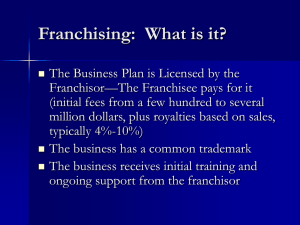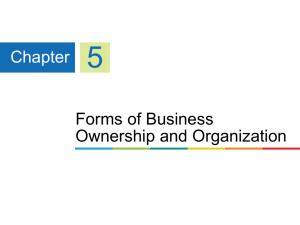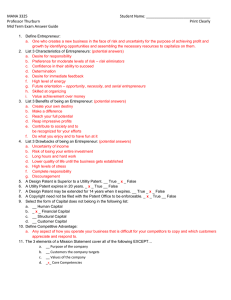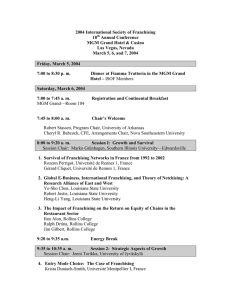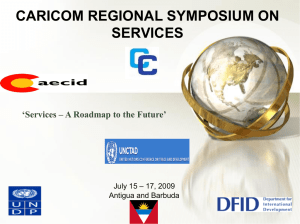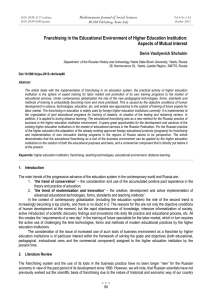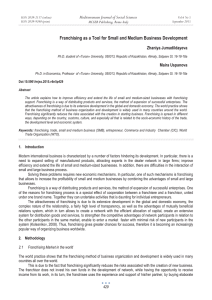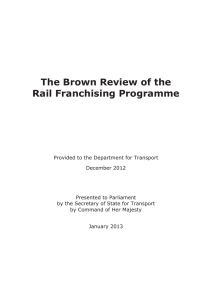Dominic Montagu_ Session Brief_Social Franchising_Session 1
advertisement
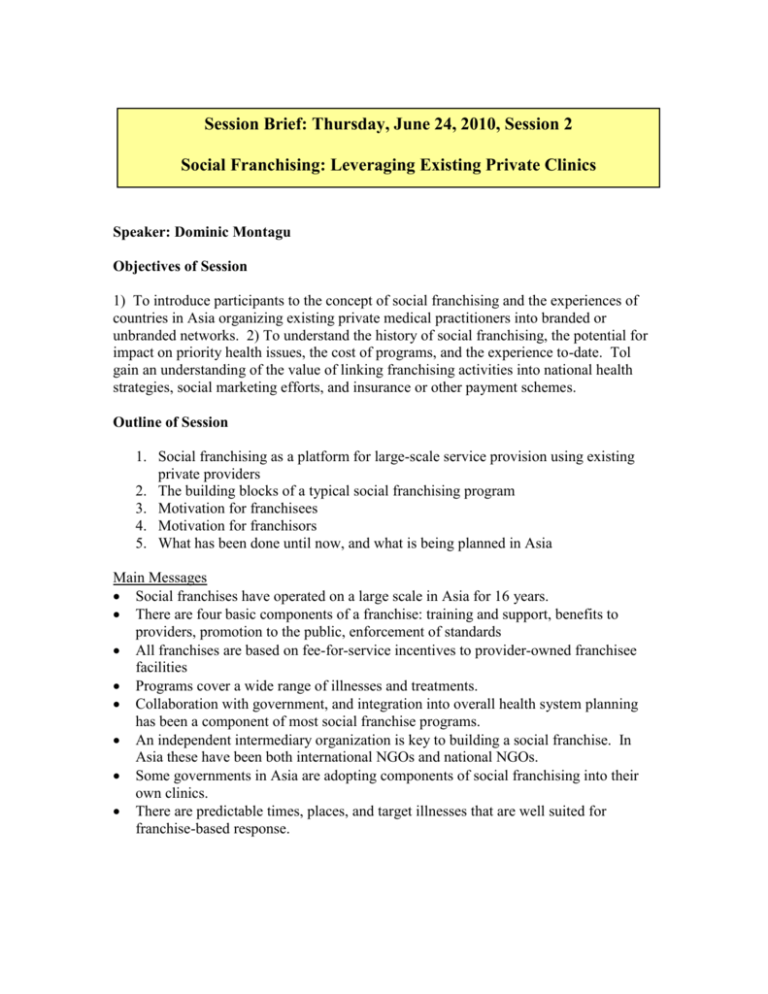
Session Brief: Thursday, June 24, 2010, Session 2 Social Franchising: Leveraging Existing Private Clinics Speaker: Dominic Montagu Objectives of Session 1) To introduce participants to the concept of social franchising and the experiences of countries in Asia organizing existing private medical practitioners into branded or unbranded networks. 2) To understand the history of social franchising, the potential for impact on priority health issues, the cost of programs, and the experience to-date. Tol gain an understanding of the value of linking franchising activities into national health strategies, social marketing efforts, and insurance or other payment schemes. Outline of Session 1. Social franchising as a platform for large-scale service provision using existing private providers 2. The building blocks of a typical social franchising program 3. Motivation for franchisees 4. Motivation for franchisors 5. What has been done until now, and what is being planned in Asia Main Messages Social franchises have operated on a large scale in Asia for 16 years. There are four basic components of a franchise: training and support, benefits to providers, promotion to the public, enforcement of standards All franchises are based on fee-for-service incentives to provider-owned franchisee facilities Programs cover a wide range of illnesses and treatments. Collaboration with government, and integration into overall health system planning has been a component of most social franchise programs. An independent intermediary organization is key to building a social franchise. In Asia these have been both international NGOs and national NGOs. Some governments in Asia are adopting components of social franchising into their own clinics. There are predictable times, places, and target illnesses that are well suited for franchise-based response. Required Readings: 1. Montagu, D. Franchising of health services in developing countries, Health Policy and Planning. 2002;17(2): 121-130. 2. Schlein, Kinlaw, and Montagu 2010: A compendium of global social franchise programs. (Available May 1, 2010 at www.sf4health.org) 3. Lonnroth K et al. Social franchising of TB care through private GPs in Myanmar: an assessment of treatment results, access, equity and financial protection. Health Policy and Planning. 2007;22:156-166. 4. Bishai D. et al. Social franchising to improve quality and access in private health care in developing countries. Health Highlights, Harvard Health Policy Review. 2008;9(1):184-197. Discussion/Study Questions 1. What are the differences between social franchising and social marketing? 2. What conditions might make a social franchise a desirable addition to a health system? 3. Are social franchises complementary, or in competition, with private or social health insurance programs? 4. What are the most important benefits to consumers arising from a social franchise? 5. Should government direct social franchises towards specific diseases? Towards specific areas (rural or urban)? 6. Can social franchises achieve full cost recover? Should they try? 7. What is an appropriate role for government in supporting social franchises?
